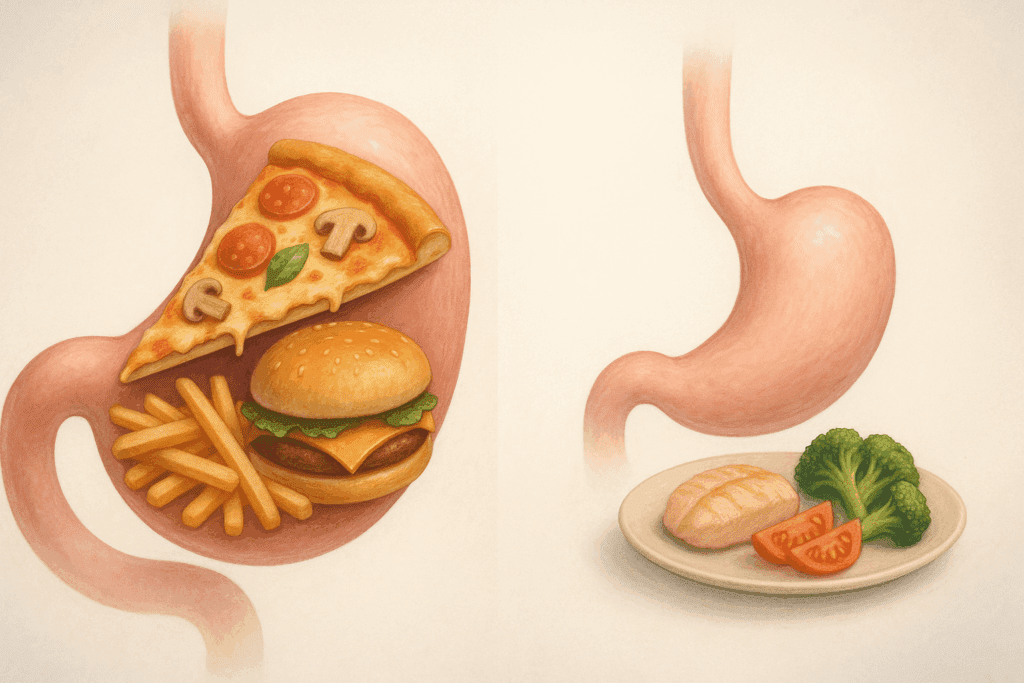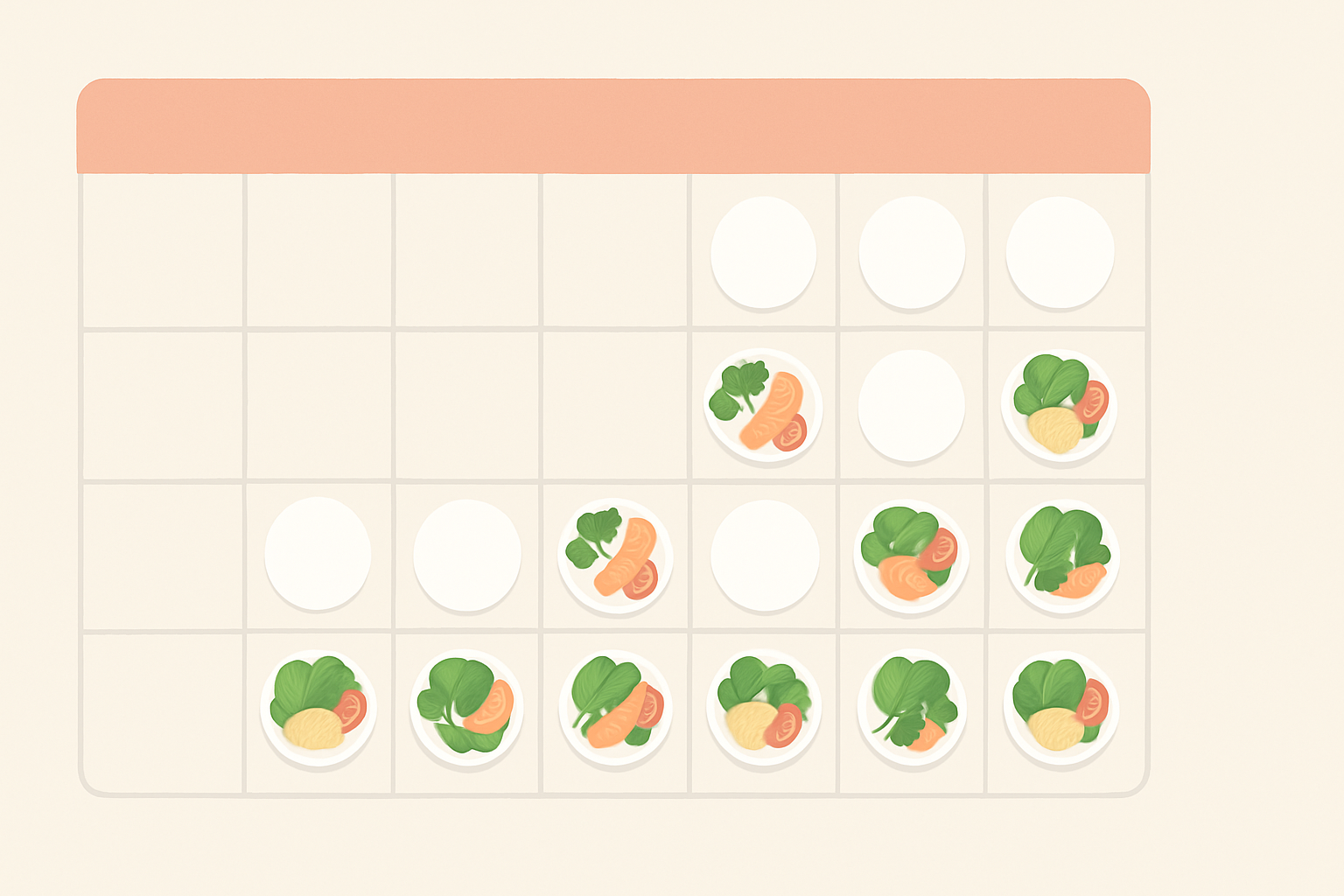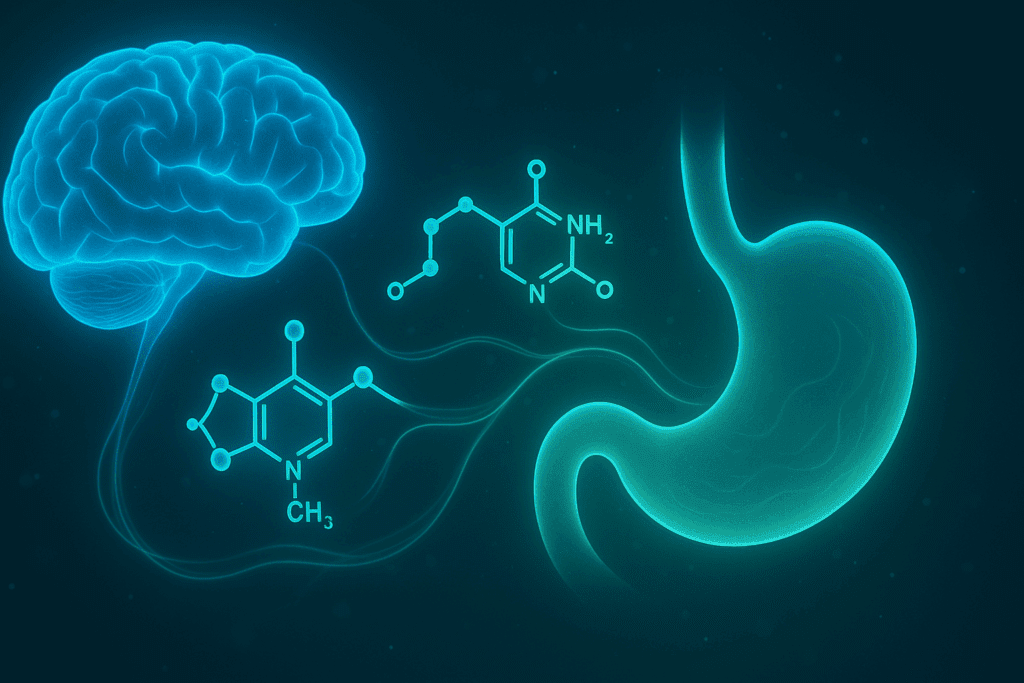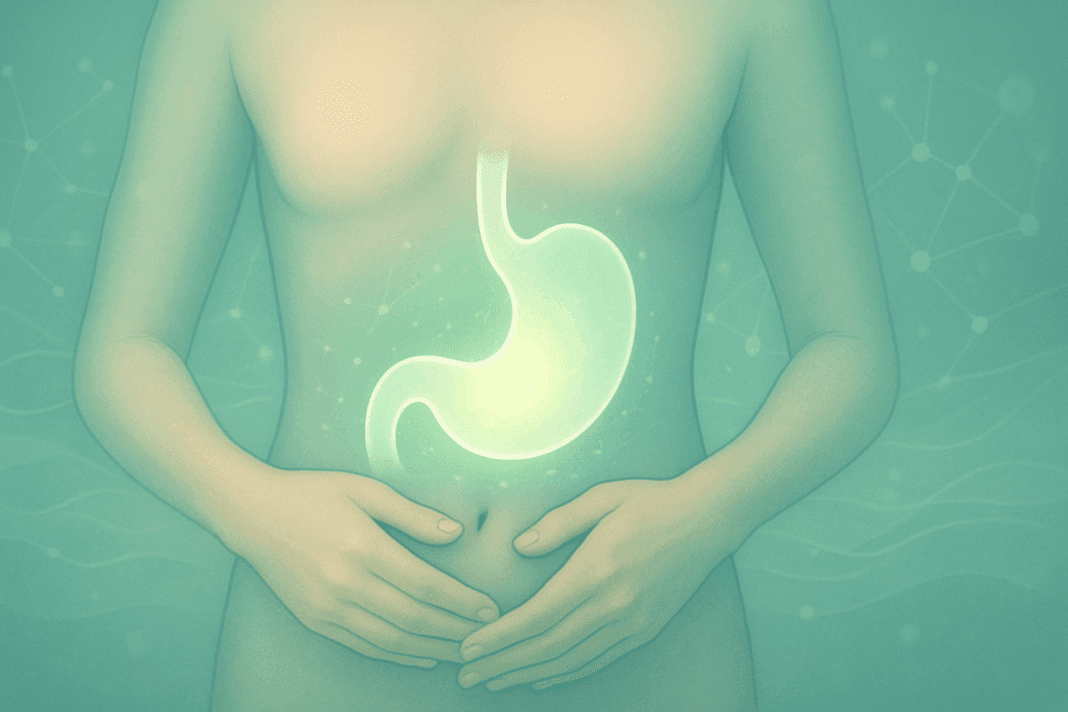Understanding the Truth Behind Stomach Size and Sensation
The idea that you can shrink your stomach through diet and lifestyle is a persistent belief found across wellness blogs, social media trends, and even casual conversations with healthcare professionals. But what does science really say about the stomach getting smaller? Can your stomach shrink in the physical sense, or is the process more nuanced—driven by satiety cues, hormone signaling, and changes in digestive capacity? Understanding the answers to these questions is essential for anyone looking to lose weight or improve digestive health without relying on myths or unproven methods.
You may also like: Expert-Backed Weight Loss Tips for a Healthier Lifestyle: What You Need to Know for Long-Term Weight Control and Wellness
The human stomach is an organ with elastic properties, meaning it can expand and contract based on how much food it holds. This expansion is temporary, not permanent. When you consume a large meal, your stomach stretches to accommodate the volume of food, then returns to its baseline shape over time. However, many people believe that by eating less, the stomach shrinks permanently. In truth, the mechanism is more about how full you feel at smaller portion sizes rather than the stomach physically reducing in size.
So, how long does it take to shrink your stomach naturally—and is it even possible in a medical sense? The answer is both complex and fascinating, involving hormonal regulation, neural pathways, gut adaptation, and behavioral conditioning. The notion that your stomach can shrink is often rooted in subjective feelings of fullness rather than anatomical change. Yet through consistent lifestyle and dietary changes, people can indeed feel satisfied with smaller meals over time, giving the impression that their stomach has shrunk.

Can Your Stomach Shrink? Separating Myths from Science
To accurately answer the question “can your stomach shrink,” we must differentiate between physical shrinkage and the perception of reduced capacity. The actual size of the adult stomach doesn’t change dramatically unless someone undergoes surgical procedures like a sleeve gastrectomy or gastric bypass, which physically reduce stomach volume. Outside of surgical intervention, the organ remains relatively stable in size, despite fluctuations in food intake.
However, there’s a compelling interplay between psychology and physiology. People often report a reduced appetite after weeks of portion control or intermittent fasting, which raises the question: does the stomach shrink in response to sustained dietary restriction? What’s actually happening is a recalibration of hunger hormones—particularly ghrelin, which stimulates appetite, and leptin, which promotes satiety. Over time, a person can feel full with less food, giving the subjective sense that their stomach has shrunk.
Clinical studies have shown that after just two to four weeks of dietary changes, individuals begin to experience fullness sooner than they previously did. While this doesn’t indicate the stomach getting smaller in a structural sense, it does highlight the body’s ability to adjust to new feeding patterns. In essence, while your stomach doesn’t shrink in the traditional sense, your relationship with food—and your body’s cues—can change profoundly with sustained lifestyle modifications.

How Do You Shrink Your Stomach Naturally Without Surgery?
For those wondering how do you shrink your stomach without medical procedures, the path lies not in anatomical changes but in altering your body’s hunger signaling and conditioning your digestive tract to accommodate smaller meals. The key lies in understanding how satiety works and gradually resetting your baseline for portion sizes.
Start by adopting smaller, more frequent meals throughout the day. When you eat more often but in smaller amounts, you avoid overstretching your stomach and help train it to expect less volume. Over time, this helps your brain recalibrate hunger and fullness signals. A 2016 study in Appetite found that participants who ate six small meals daily reported increased satisfaction and reduced total caloric intake compared to those who ate three larger meals.
Fiber-rich foods play a pivotal role in this process. Soluble fibers like oats, beans, and flaxseed swell with water in the stomach, creating bulk that promotes a sense of fullness without adding excessive calories. These fibers slow gastric emptying and stimulate the release of satiety hormones, mimicking the effects of a larger meal while reducing overall intake. This is a natural, science-supported way to create the feeling of a stomach getting smaller.
Hydration also matters. Drinking a glass of water before meals helps pre-fill the stomach and reduce hunger. While this doesn’t physically shrink your stomach, it can lead to consuming smaller portions comfortably. Pairing hydration with mindful eating—chewing thoroughly, eating slowly, and recognizing true hunger cues—helps reinforce behavioral patterns that lead to a reduced appetite over time.

How Long Does It Take to Shrink Your Stomach Through Diet and Behavior?
If you’re wondering how long does it take to shrink your stomach naturally through non-surgical means, research suggests that consistent dietary and behavioral changes can lead to noticeable differences in appetite and satiety within two to eight weeks. The key word here is naturally—because we’re not referring to physical alterations of the stomach, but rather functional and perceptual changes that evolve with time and consistency.
In a study published in The American Journal of Clinical Nutrition, researchers found that participants who reduced their portion sizes and ate nutrient-dense meals over a span of four weeks reported significant decreases in hunger and calorie intake. These changes were not due to anatomical shifts in stomach size but were attributed to improved hormonal regulation and neural adaptation.
Behavioral changes also play a vital role. Eating more slowly allows the stomach to send fullness signals to the brain in a timely manner, preventing overeating. This practice becomes second nature after just a few weeks of conscious effort. Likewise, reducing intake of processed foods—which tend to be high in calories but low in satiety—makes a meaningful difference in how satisfied one feels with smaller meals.
Intermittent fasting, another popular approach, has shown promise in resetting hunger patterns. After a few weeks of timed eating windows, many people report a reduced appetite and greater satisfaction with less food. Again, this doesn’t mean the stomach shrinks permanently, but rather that the body becomes more efficient in managing hunger and satiety. So, while the answer to how long it takes to shrink your stomach varies between individuals, a general timeframe of four to eight weeks is often sufficient to notice meaningful change.
Does the Stomach Shrink When You Eat Less?
One of the most commonly asked questions in diet culture is, “does the stomach shrink when you eat less?” This is understandable, especially since prolonged calorie reduction often leads to less hunger and smaller portion sizes. Scientifically speaking, the stomach can reduce in temporary volume between meals, but its baseline size doesn’t permanently shrink unless altered surgically.
However, a decrease in food volume can lead to more efficient digestion and a rewiring of neural satiety cues. As you continue to eat less over time, your body’s threshold for feeling full decreases—not because your stomach has physically shrunk, but because your hormone levels, gastric emptying rates, and gut-brain signaling have adapted to your new eating patterns.
This adaptation is also influenced by the macronutrient content of your meals. Protein and fat, for instance, are more satiating than simple carbohydrates and help slow down digestion. When combined with fiber and water-rich vegetables, these nutrients create a more prolonged feeling of fullness that mimics the sensation of a “shrunken” stomach.
It’s worth noting that binge eating or frequent overeating can reverse these adaptations. The stomach is highly elastic and can expand to accommodate larger volumes of food. When this occurs regularly, your baseline for satiety increases, and it takes more food to feel full. In contrast, consistent moderation reinforces the feeling that your stomach is getting smaller, even if it’s only perceptual.
Will Your Stomach Shrink If You Follow a Consistent Eating Pattern?
This leads us to another important question: will your stomach shrink if you maintain a structured, portion-controlled eating pattern? While the stomach’s actual size remains largely unchanged, a regular routine of mindful eating can significantly impact how full you feel, how often you feel hungry, and how much food you need to be satisfied.
Sticking to consistent meal timing trains your digestive system to expect nourishment at specific intervals. This synchronization helps regulate hormones like ghrelin, which rises before meals to stimulate hunger, and declines after eating to signal fullness. Over time, this rhythm becomes more predictable, and erratic hunger spikes become less common. This structured approach supports long-term portion control, leading to a sustained reduction in meal size and the impression that your stomach has shrunk.
Another factor is the reduced gastric accommodation that occurs with meal downsizing. The stomach gradually becomes less distensible when it’s not routinely stretched by large meals. This contributes to feeling fuller with less food and encourages the consumption of more balanced, nutrient-dense meals rather than large, calorie-laden ones. These physiological changes support the behavioral goal of reducing food intake while maintaining satisfaction.
Moreover, if you’re engaging in regular physical activity alongside dietary control, this can enhance digestion, metabolism, and overall appetite regulation. Exercise improves insulin sensitivity and can help balance blood sugar levels, which in turn influences hunger. The combination of exercise and mindful eating creates a synergistic environment in which your stomach seems to adapt to smaller meals over time—even if the anatomical change is minimal.

The Role of Satiety Hormones in the Perception of a Shrinking Stomach
The perception of a stomach getting smaller is intricately tied to how hormones regulate appetite and satiety. Ghrelin, known as the “hunger hormone,” is primarily produced in the stomach and signals the brain to initiate eating. When food intake is reduced consistently, ghrelin levels gradually adjust downward, diminishing frequent hunger pangs. On the other hand, hormones like peptide YY (PYY) and glucagon-like peptide-1 (GLP-1) help promote feelings of fullness after meals.
These hormonal responses can be influenced by dietary composition. For example, high-protein meals tend to boost PYY and GLP-1 levels more effectively than meals rich in refined carbohydrates. This hormonal feedback loop helps explain why individuals following high-protein, low-glycemic diets often report early satiety and reduced hunger. Over time, this leads to smaller portions and the impression that their stomach is shrinking.
Moreover, the gut-brain axis—a communication system between the gastrointestinal tract and the central nervous system—plays a central role in regulating these hormonal signals. Disruptions to this axis, such as those caused by chronic stress, sleep deprivation, or inflammatory diets, can interfere with hunger and fullness cues. Thus, managing stress and getting adequate rest are also key components in helping your body adjust to a smaller meal pattern.
Through sustained dietary choices, it is entirely possible to recalibrate this hormonal system. While this doesn’t physically reduce your stomach’s size, it does influence your experience of hunger in a profound and lasting way. The long-term outcome is a healthier appetite, greater control over eating habits, and a decreased desire for large meals.

Strategies That Promote the Feeling of a Smaller Stomach Naturally
Creating the sensation that your stomach has shrunk involves a combination of physical, behavioral, and psychological strategies. First and foremost, start by reducing portion sizes gradually rather than drastically. Sudden and extreme reductions in food intake can backfire, leading to increased hunger and binge-eating episodes. Instead, reduce meal sizes incrementally over several weeks to allow your body and mind to adjust.
Incorporating mindful eating practices enhances awareness and reduces unconscious overeating. Chewing food thoroughly, pausing between bites, and paying attention to hunger and fullness signals allows your brain to process satiety more effectively. Research has shown that individuals who practice mindful eating tend to consume fewer calories while reporting higher satisfaction after meals.
Next, focus on nutrient-dense foods that provide volume without excessive calories. Leafy greens, cruciferous vegetables, legumes, whole grains, and lean proteins are excellent choices. These foods slow digestion, stabilize blood sugar, and extend feelings of fullness—all of which support the impression of a stomach getting smaller.
Finally, get adequate sleep and manage stress, as both of these factors can sabotage hunger regulation. Lack of sleep has been shown to increase ghrelin levels and decrease leptin, leading to greater hunger. Chronic stress elevates cortisol, which can trigger emotional eating and disrupt your ability to stick to portion-controlled meals. Together, lifestyle factors like sleep, stress management, exercise, and hydration create a foundation for sustainable satiety and successful appetite control.
Frequently Asked Questions: Shrinking Your Stomach Naturally Through Diet and Lifestyle
1. Can your stomach shrink if you fast regularly, and how sustainable is that effect?
Fasting can influence your perception of hunger and fullness, which may lead you to feel like your stomach is getting smaller. While the stomach doesn’t physically shrink in a lasting way from intermittent fasting alone, the routine can recalibrate appetite hormones like ghrelin and leptin, helping you feel satisfied with less food. The sustainability of this effect depends on consistency, meal quality, and how your body adapts over time. If you break a fasting routine with large meals or inconsistent eating, those adaptive benefits may diminish. So while fasting doesn’t directly answer the question of how do you shrink your stomach physically, it does show that your eating habits can reshape how your body experiences fullness in a sustainable and practical way.
2. Does the stomach shrink with age, and can that affect appetite or digestion?
Interestingly, while the stomach’s elasticity does not significantly decrease with age, overall gastrointestinal motility can slow down. This change can make older adults feel full sooner, giving the impression that the stomach is getting smaller even when its size remains the same. Additionally, age-related hormonal shifts can suppress appetite, which supports the idea that with time, your body naturally adjusts to needing less food. However, this doesn’t mean that the answer to “will your stomach shrink as you age” is a simple yes. It’s more about how aging influences digestion and appetite regulation, not the anatomical size of the stomach itself. Ensuring nutrient density becomes more important in this context to meet health needs without increasing volume.
3. How do stress and emotional eating impact efforts to shrink your stomach naturally?
Stress has a powerful influence on appetite regulation and often leads to emotional eating patterns that can counteract attempts at portion control. When cortisol—the stress hormone—is elevated, it increases cravings for calorie-dense comfort foods, which can expand your eating volume over time. If your goal is figuring out how do you shrink your stomach naturally, then stress reduction strategies are essential. Chronic stress can undermine hormonal balance, delay satiety signaling, and trigger digestive issues that may mask the body’s ability to adapt to smaller meals. Techniques like mindfulness, yoga, and cognitive behavioral therapy can improve emotional regulation and support the long-term perception of a stomach getting smaller through consistent meal habits.
4. How do cultural eating patterns affect your ability to feel like your stomach is shrinking?
Different cultures have diverse traditions surrounding food, such as meal timing, portion sizes, and food variety, which all influence appetite cues. In countries where smaller, more frequent meals are the norm, people often report naturally lower hunger levels and better appetite regulation. If you’re aiming to understand how long does it take to shrink your stomach or whether it’s even possible in your lifestyle, cultural factors play a significant role. Adapting cultural norms—such as incorporating slower eating practices or emphasizing plant-based meals—can help reinforce satiety and portion control. This approach doesn’t just support the feeling of a stomach getting smaller but also aligns food choices with long-term wellness goals.
5. Can gut health affect whether or not your stomach seems to shrink over time?
Absolutely. A balanced gut microbiome plays a central role in hunger regulation, nutrient absorption, and digestive efficiency. When the gut is inflamed or unbalanced, it can disrupt the signaling that tells your brain you’re full, making it harder to regulate portion sizes. This raises a compelling angle for those asking “can your stomach shrink naturally,” as it may depend in part on microbial health. Probiotics, prebiotic fibers, and anti-inflammatory foods can help restore gut function and promote more accurate satiety signals. Supporting gut health is a foundational strategy for creating the perception that your stomach is shrinking—without needing to drastically cut calories or rely on fad diets.
6. What role does meal timing play in the sensation of your stomach getting smaller?
Meal timing influences both your hormonal rhythms and digestive efficiency. Eating large meals late at night, for example, can interfere with leptin production and lead to excess hunger the next day. If you’re working toward understanding how do you shrink your stomach using sustainable habits, consistent meal timing is key. Eating at regular intervals helps your body anticipate food and regulate hunger accordingly, reducing the likelihood of overeating. Over weeks of scheduled, portion-controlled meals, your appetite naturally downshifts, creating the impression that your stomach has adapted to a smaller volume—though again, the physical stomach size stays the same.
7. Does the stomach shrink differently in men and women due to hormonal differences?
While the physical ability of the stomach to expand and contract is similar across genders, hormonal profiles do affect how hunger and fullness are experienced. Estrogen and progesterone, for instance, can impact fluid retention, digestion speed, and food cravings in women, especially during menstrual cycles. This means the question “will your stomach shrink the same way regardless of gender” has a nuanced answer. Men may experience more consistent hunger regulation, while women’s perception of fullness can fluctuate with hormonal changes. Understanding these differences allows for more tailored approaches when attempting to create the experience of a stomach getting smaller through meal structuring and timing.
8. Can mindfulness-based eating really influence how long it takes to shrink your stomach naturally?
Mindfulness-based eating is a powerful tool that complements physiological adjustments. By slowing down meals, focusing on flavors, and paying attention to hunger cues, individuals often find they are satisfied with significantly less food. This process can make a major difference for people asking how long does it take to shrink your stomach through non-diet methods. Studies suggest that mindful eating practices can reset hunger thresholds in as little as two to three weeks. Over time, this technique not only supports healthier digestion and nutrient absorption but also reinforces the behavioral feeling that your stomach is getting smaller—even though its size hasn’t changed structurally.
9. How do medications affect your body’s ability to adjust to smaller portions?
Certain medications can either support or hinder satiety signaling. For instance, drugs like GLP-1 receptor agonists—used to manage diabetes and obesity—enhance fullness and reduce hunger, making smaller meals feel more satisfying. Conversely, some medications (like corticosteroids or certain antidepressants) can increase appetite and delay satiety. This means that if you’re working on strategies around how do you shrink your stomach, medication interactions must be considered. Speak with your healthcare provider if you feel that your appetite changes dramatically while taking new prescriptions. Adjusting your treatment plan or incorporating appetite-regulating strategies may help you get back on track toward feeling like your stomach is getting smaller naturally.
10. What are the long-term psychological benefits of believing your stomach has shrunk?
Perceiving that your stomach has adapted to smaller meals can enhance self-control, reduce food-related anxiety, and foster a more peaceful relationship with eating. This perception often boosts confidence and encourages long-term adherence to healthy eating routines. For many, exploring the idea of “does the stomach shrink” becomes less about anatomical change and more about mental reinforcement. When your brain feels in sync with your body’s needs, food choices become intuitive rather than reactive. This mindset shift—believing that your stomach is getting smaller in a healthy, gradual way—can be transformative for lasting behavior change, especially when supported by evidence-based nutrition and lifestyle practices.
Final Thoughts: Does the Stomach Shrink, and What Really Matters for Long-Term Success?
So, does the stomach shrink when you eat less? Scientifically, not in the permanent way many people assume. But functionally—yes, your body absolutely adapts to smaller meals, lower caloric intake, and a more regulated appetite through powerful hormonal and neurological changes. Understanding how long does it take to shrink your stomach naturally requires recognizing that the process is more about conditioning than constriction.
If you’ve been wondering how do you shrink your stomach or whether will your stomach shrink over time with mindful dietary habits, the answer is encouraging. With consistent behavior, you can reach a point where your appetite adjusts, meals become more satisfying, and cravings are easier to control. Whether you pursue this through portion control, intermittent fasting, high-fiber eating, or mindful habits, the outcome is the same—a healthier relationship with food and a noticeable reduction in how much it takes to feel full.
Ultimately, the goal isn’t to physically reduce the size of your stomach, but to work with your body’s natural signals and create an environment where satiety is easier to achieve. Over time, your stomach may not shrink anatomically, but your capacity to eat less and feel satisfied can absolutely grow. And that’s the kind of change that truly supports long-term wellness, weight management, and digestive health.
Further Reading:
Can Your Stomach Shrink? Here’s What Actually Happens When You Eat Less, According To Doctors


